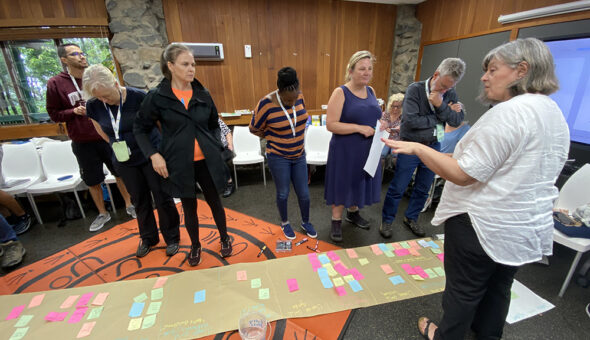The Dutch Way - Teach, Lead and Learn the Dutch Way
Authors: Alma Harris and Michelle Jones
The global interest in high performing education systems shows no signs of slowing down. The simple and persuasive argument of ‘borrowing from the best’ has placed an international spotlight on a select group of education systems and not others. While undoubtedly there is much than can be learned from cross-cultural comparisons, it is proposed that there is significantly more to be gained from in-depth country specific analysis.
A new book called the ‘The Dutch Way’ looks at an education system that is rarely featured in the global discourse on educational reform. The book includes contributions from a range of Dutch experts with the core aim to illuminate and exemplify different aspects of education in the Netherlands.
It is important to note that the book is not an uncritical celebration of all that makes up Dutch education. Rather, it is an empirically-informed, critically-reflective narrative compiled by those best placed to comment upon what has been achieved and what is still to be achieved within this context.
Overall, the book proposes that the Netherland seems to be 'a best kept educational secret’. The available evidence points to the fact that unlike many other education systems, some of them in the top 5 of PISA, the Dutch system demonstrates equity and excellence (OECD, 2016).
In terms of the percentages of youth who are not in employment, education or training, the track- record in the Netherlands is well below the OECD average. Since 2005, the percentage of young people in this category has not exceeded 5% and on average has stayed at 3.6%. This has profound societal consequences and reinforces the importance of equality of opportunity in Dutch society. The literacy level of adults in the Netherlands is high. The country comes third in international measures after Finland and Japan. The education system in the Netherlands balances strong school autonomy with strong public accountability.
The introductory section of the OECD (2016:11) report states:
‘The Dutch school system is one of the best in the OECD… It is also equitable with a very low proportion of low performers. Basic skills are very good on average while the system minimises weak basic skills among teenagers effectively as the East Asia champions of Japan and Korea. This is supplemented by a strong vocational education and training system with good labour market outcomes. The system is underpinned by a high level of decentralisation, balanced by a national examination system and a strong Inspectorate of Education, school financing which supports disadvantaged students, experimentation and innovation, and good data and research’.
The report concludes; ‘in many respects the Dutch education system stands out from the crowd’ (OECD 2016; 17).
So, what can we learn from the Dutch education system? What can the international community take away? Essentially, the book argues that there are three key lessons from the Dutch education system. First, the Netherlands does not rely on school competition or market forces to secure better educational performance. Conversely, it relies on strong collaboration between teachers, schools and municipalities to raise achievement and attainment.
Second, it does not exclude students from its education system who are disadvantaged, marginalised or are refugees from another country. Instead, it makes every effort to ensure that young people, from all backgrounds, do not leave school early and that they enter the workforce of higher education qualified to participate.
Third, the Dutch system shows that it is perfectly possible to combine educational equity and quality. While some may argue that there is more work to be done in this area, compared to many other countries the Dutch education system is undoubtedly moving in a positive direction.
While the Dutch education system, like all education systems, has shortcomings, its core educational values remain firmly fixed. The fact that the Dutch education system continues to demonstrate that excellence through equity is both imperative and achievable is not only profoundly hopeful but also captures the very essence of ‘The Dutch Way’.
Responses


very interesting, good job and thanks for sharing such a good blog.